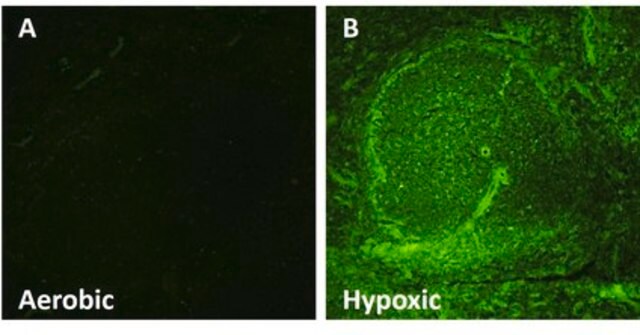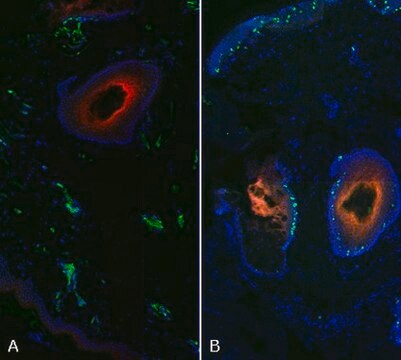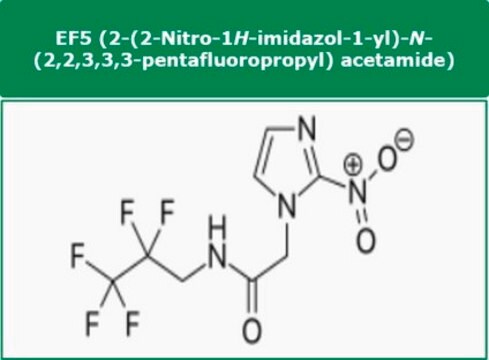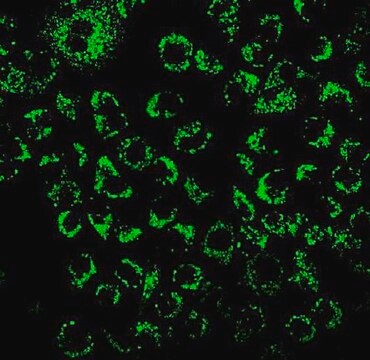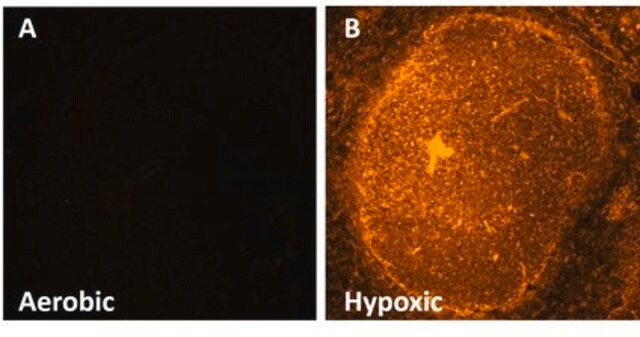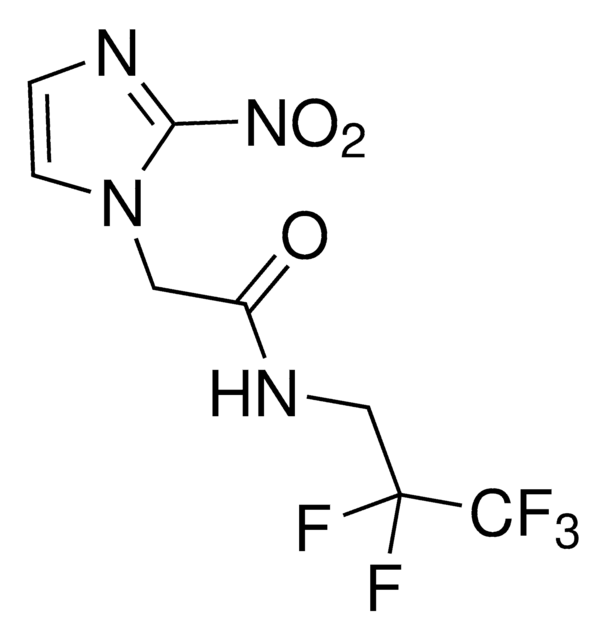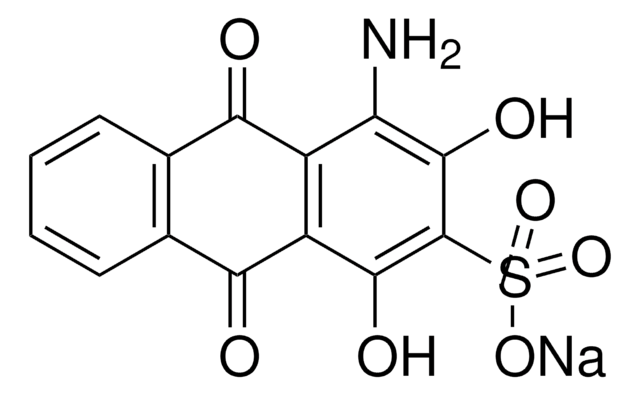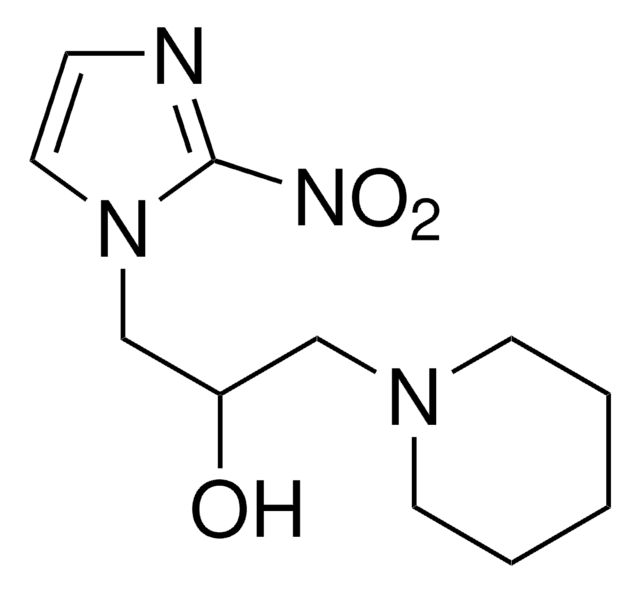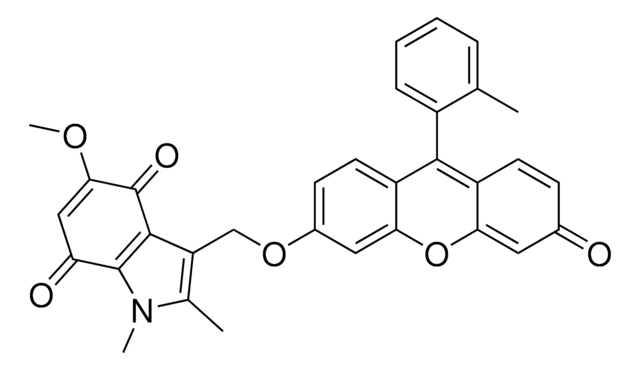EF5012
Anti-EF5 Antibody, clone ELK3-51 Antibody, Cyanine 5 conjugate
clone ELK3-51, from mouse, CY5 conjugate
About This Item
Prodotti consigliati
Origine biologica
mouse
Coniugato
CY5 conjugate
Tipo di anticorpo
primary antibodies
Clone
ELK3-51, monoclonal
Reattività contro le specie
human, rat, mouse
tecniche
immunofluorescence: suitable
immunohistochemistry: suitable
Isotipo
IgG1
Descrizione generale
Advantages of the EF5 hypoxia detection method:
• EF5 exists in only one form; Pimidozole, an alternative hypoxia marker, exists in two forms; one of which is charged and very hydrophilic, the other lipophilic. Pimidozole thus has a very complex biodistribution. In contrast, EF5 is lipophilic and uncharged and this allows very rapid and even tissue distribution.
• EF5 binding images can be calibrated to provide quantitative data on the pO2 values of each cell (1). The fluorescent images obtained from EF5 binding can be calibrated according to camera settings and a “cube-binding” value which is obtained through a separate procedure. The intensity values of calibrated images are directly related to actual tissue pO2 values. As a result, these images provide information regarding not only where hypoxic areas may or may not be, but also data regarding the distribution and levels of hypoxia.
Reference:
Koch CJ (2002) Measurement of absolute oxygen levels in cells and tissues using oxygen sensors and 2-nitroimidazole EF5. Methods in Enzymology 352: 3-31.
Applicazioni
Cancer
Hypoxia
Stoccaggio e stabilità
Altre note
Esclusione di responsabilità
Non trovi il prodotto giusto?
Prova il nostro Motore di ricerca dei prodotti.
Codice della classe di stoccaggio
12 - Non Combustible Liquids
Classe di pericolosità dell'acqua (WGK)
WGK 2
Punto d’infiammabilità (°F)
Not applicable
Punto d’infiammabilità (°C)
Not applicable
Certificati d'analisi (COA)
Cerca il Certificati d'analisi (COA) digitando il numero di lotto/batch corrispondente. I numeri di lotto o di batch sono stampati sull'etichetta dei prodotti dopo la parola ‘Lotto’ o ‘Batch’.
Possiedi già questo prodotto?
I documenti relativi ai prodotti acquistati recentemente sono disponibili nell’Archivio dei documenti.
Il team dei nostri ricercatori vanta grande esperienza in tutte le aree della ricerca quali Life Science, scienza dei materiali, sintesi chimica, cromatografia, discipline analitiche, ecc..
Contatta l'Assistenza Tecnica.